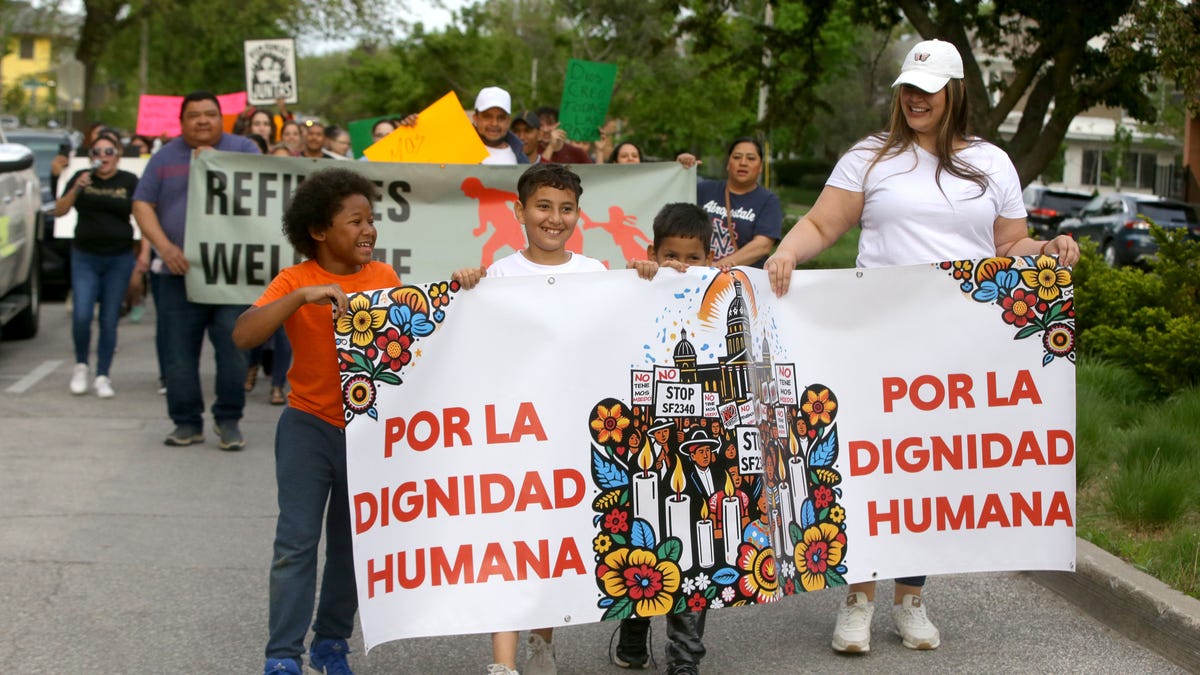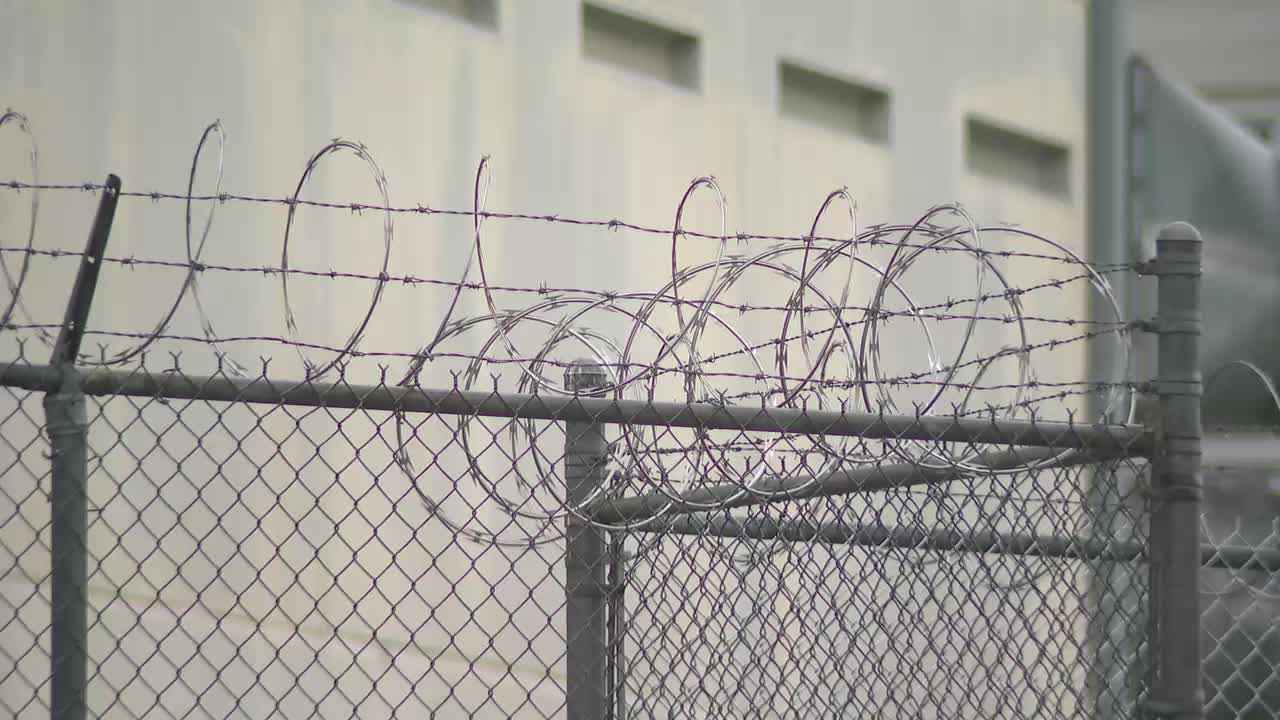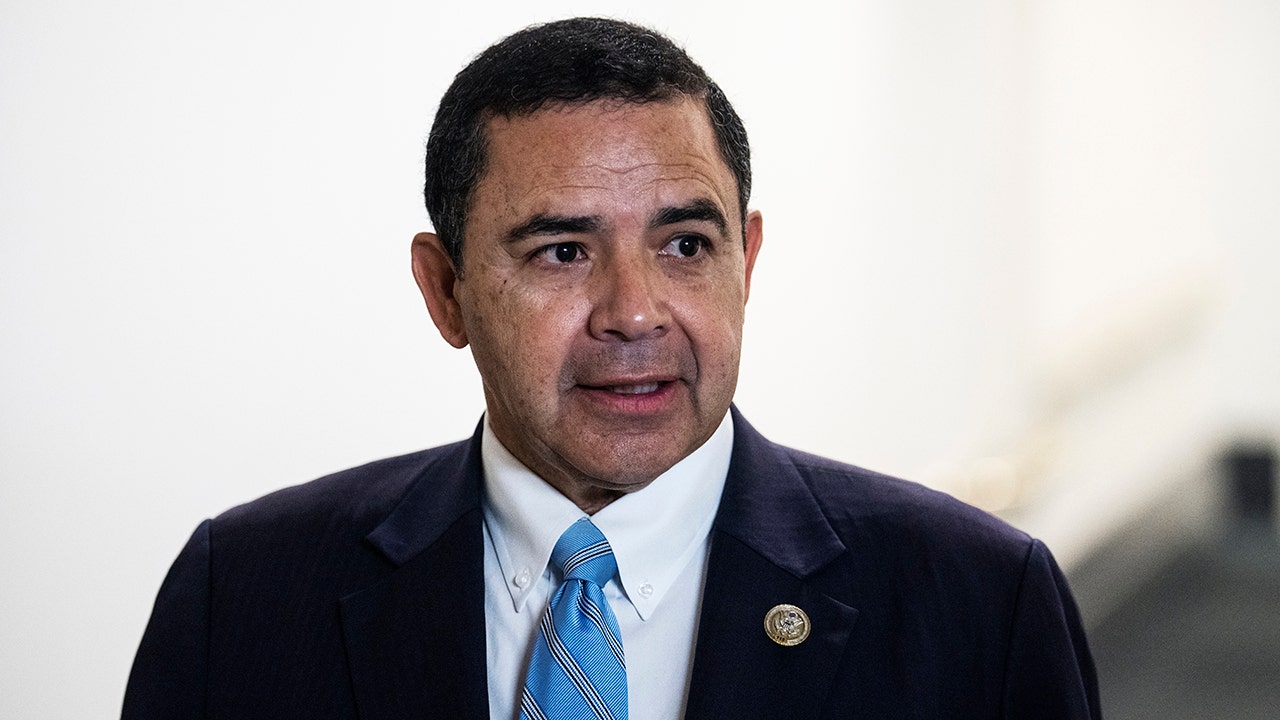World
Italy-Albania migration deal must follow EU rules, says Brussels
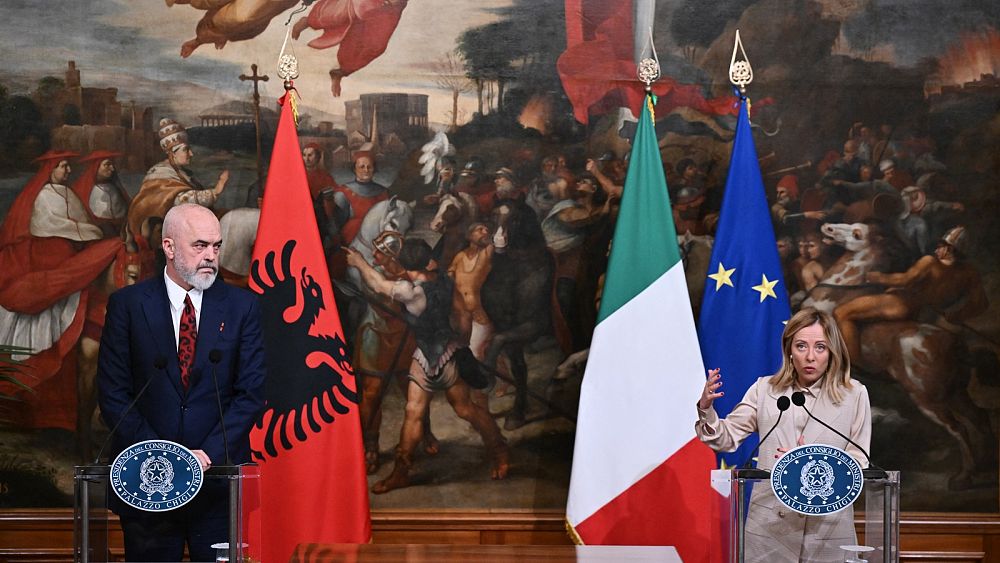
The European Commission has issued a tepid response to the migration deal struck between Italy and Albania, simply warning it must comply with EU and international law.
“We’re in contact with the Italian authorities because we need to see the details. We’re asking to receive detailed information on this type of arrangement,” a European Commission spokesperson said on Tuesday afternoon.
The agreement, the first of its kind for an EU member state, was announced on Monday by Italian Prime Minister Giorgia Meloni and her Albanian counterpart Edi Rama during a bilateral meeting in Rome.
Under the deal, which was unexpected, Italy will build two reception centres in the Balkan country to process the asylum claims of migrants rescued in the Mediterranean Sea by Italian authorities, who will then be disembarked in the Albanian coastal town of Shëngjin.
The hubs will have the capacity to house up to 3,000 migrants at a time, Meloni explained, with the goal of processing 36,000 applications per year. Pregnant women, children and vulnerable people will be excluded from the scheme.
The infrastructure will be paid for by Rome while Tirana has committed to providing security services and external surveillance. The launch has been set for spring 2024.
Notably, the two centres will be governed under Italian jurisdiction, a point that has raised concerns about the extraterritorial application of Italian and EU law in a country outside of the 27-member bloc.
“Member states are not as such precluded from adopting measures under national law to allow for applications for asylum to be made (by) persons from third countries,” the Commission spokesperson said. “However, this must be done without any prejudice to the full application” of the EU’s asylum rules.
The question of who will handle the deportation of rejected applicants remains unclear. Initial reports suggested the task would be carried out by Albanian authorities but PM Rama later said it would first fall on Italian shoulders.
The agreement was reached at the political level and still needs to be “followed by all the consequent regulatory provisions,” Meloni noted. Amnesty International has already criticised the proposal as “illegal” and “unworkable.”
The development immediately evoked comparisons with the controversial migration deal between the United Kingdom and Rwanda, which would see asylum seekers being transferred from British territory to the African country while their claims are examined. The deal is still blocked by British courts and no deportation has taken place.
Ylva Johansson, the European Commissioner for Home Affairs, said last year the UK plan was “not a humane and dignified migration policy.” But Austria recently said it was open to exploring a Rwanda-style agreement with a non-EU country.
Asked about the comparison, the Commission spokesperson denied the similarity as the Italian-Albanian scheme would apply to those who have not yet reached Italian shores.
“We need first to understand the Italian case before we can go into details. From the first information that we see, this is not the same case. But again, we will need detailed information,” the spokesperson said.
The news from Rome comes as the bloc’s five-pronged migration reform enters the final stretch. The overhaul includes a speedier “border procedure” to examine asylum requests from applicants from countries with a low recognition rate, such as Tunisia, Egypt, Morocco and Pakistan. The procedure should last a maximum of 12 weeks.
In parallel to the reform, member states are pushing to strengthen the so-called “external dimension” of migration, coded language for partnerships with non-EU countries to prevent the departure of migrant vessels and crack down on human smugglers.
Italy, which this year has seen the irregular arrival of more than 145,000 migrants, has become one of the most vocal proponents of this new policy.
“I believe (the deal) could become a model of cooperation between EU and non-EU countries in managing migration flows,” Meloni told Il Messaggero in an interview, noting she had informed the Commission in advance and not received any negative feedback.
“I think this agreement features a bold European spirit.”
However, the most tangible result of the external dimension – the memorandum of understanding with Tunisia – has been rocked with disagreements, setbacks and an unprecedented refund since its signature in mid-July.
This article has been updated with more information.

World
Night Court Renewed for Season 3

ad
World
Colombia cuts diplomatic relations with Israel, but its military relies on Israeli technology
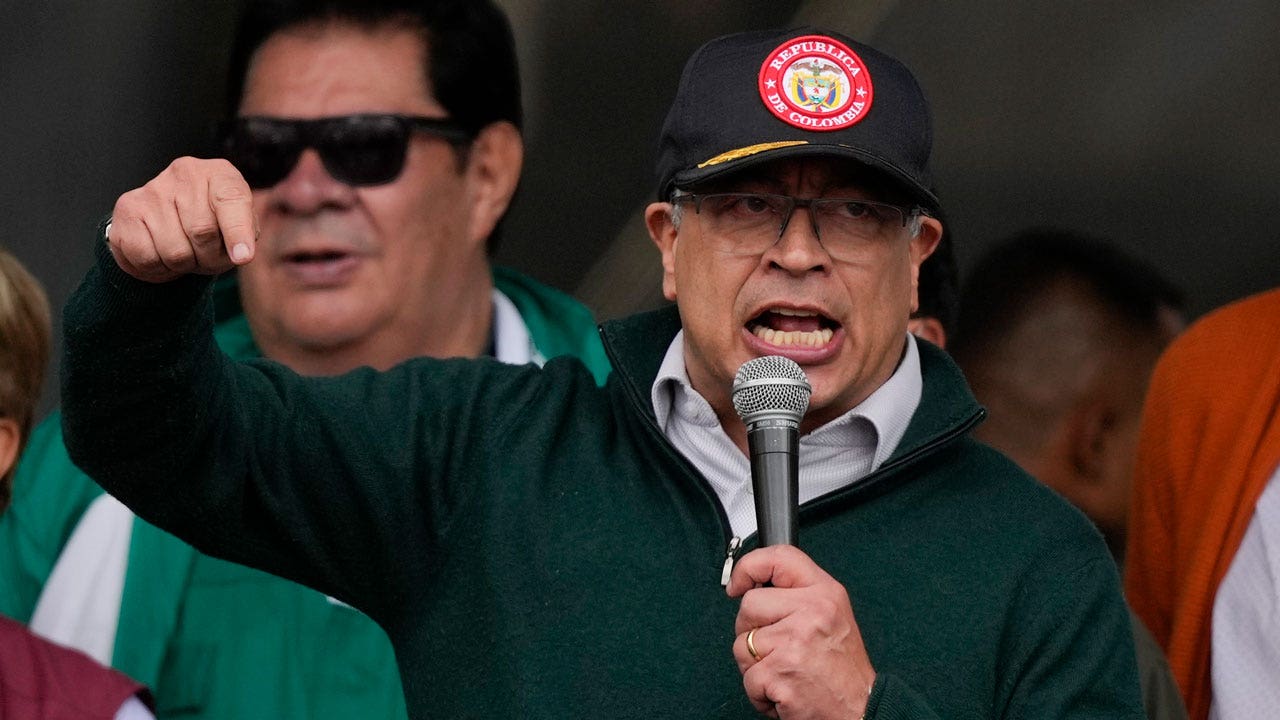
Colombia has become the latest Latin American country to announce that it will break diplomatic relations with Israel over its military campaign in Gaza, but the repercussions for the South American nation could be broader than for other countries because of longstanding bilateral agreements over security matters.
Colombian President Gustavo Petro on Wednesday described Israel’s actions in Gaza as “genocide,” and announced his government would end diplomatic relations with Israel effective Thursday. But he didn’t address how his decision could affect Colombia’s military, which uses Israeli-built warplanes and machine guns to fight drug cartels and rebel groups, and a free trade agreement between both countries that went into effect in 2020.
Also in the region, Bolivia and Belize have severed diplomatic relations with Israel over the Israel-Hamas war.
COLOMBIA’S PRESIDENT SAYS HUNDREDS OF THOUSANDS OF PIECES OF AMMUNITION HAVE GONE MISSING FROM MILITARY BASES
Here’s a look at Colombia’s close Israel ties and fallout:
WHY IS SECURITY COOPERATION BETWEEN COLOMBIA AND ISRAEL IMPORTANT?
Colombia and Israel have signed dozens of agreements on wide-ranging issues, including education and trade, since they established diplomatic relations in 1957. But nothing links them closer than military contracts.
Colombia’s fighter jets are all Israeli-built. The more than 20 Kfir Israeli-made fighter jets were used by its air force in numerous attacks on remote guerrilla camps that debilitated the Revolutionary Armed Forces of Colombia. The attacks helped push the rebel group into peace talks that resulted in its disarmament in 2016.
Colombian President Gustavo Petro speaks at the International Workers’ Day march in Bogota, Colombia, on May 1, 2024. Petro on Wednesday announced his government would end diplomatic relations with Israel. (AP Photo/Fernando Vergara)
But the fleet, purchased in the late 1980s, is aging and requires maintenance, which can only be carried out by an Israeli firm. Manufacturers in France, Sweden and the United States have approached Colombia’s government with replacement options, but the spending priorities of Petro’s administration are elsewhere.
Colombia’s military also uses Galil rifles, which were designed in Israel and for which Colombia acquired the rights to manufacture and sell. Israel also assists the South American country with its cybersecurity needs.
WILL PETRO’S ANNOUNCEMENT AFFECT COLOMBIA’S MILITARY-RELATED CONTRACTS WITH ISRAEL?
It remains unclear.
Colombia’s Foreign Ministry said Thursday in a statement that “all communications related to this announcement will be made through established official channels and will not be public.” The ministry didn’t immediately respond to a request for comment from The Associated Press, while the Israeli Embassy in Bogota declined to address the issue.
However, a day before Petro announced his decision, Colombian Defense Minister Iván Velásquez told lawmakers that no new contracts will be signed with Israel, though existing ones will be fulfilled, including those for maintenance for the Kfir fighters and one for missile systems.
Velásquez said the government has established a “transition” committee that would seek to “diversify” suppliers to avoid depending on Israel. He added that one of the possibilities under consideration is the development of a rifle by the Colombian military industry to replace the Galil.
Security cooperation has been at the center of tensions between the two countries. Israel said in October that it would halt security exports to Colombia after Petro refused to condemn Hamas’ Oct. 7 attack on southern Israel that triggered the war and compared Israel’s actions in Gaza to those of Nazi Germany. In February, Petro announced the suspension of arms purchases from Israel.
For retired Gen. Guillermo León, former commander of the Colombian air force, the country’s military capabilities will be affected if Petro’s administration breaks its contract obligations or even if it complies with them but refuses to sign new ones.
“At the end of the year, maintenance and spare parts run out, and from then on, the fleet would rapidly enter a condition where we would no longer have the means to sustain it,” he told the AP. “This year, three aircraft were withdrawn from service due to compliance with their useful life cycle.”
WHAT IS THE TRADE RELATIONSHIP BETWEEN THE TWO COUNTRIES?
A free trade agreement between Colombia and Israel went into effect in August 2020. Israel now buys 1% of Colombia’s total exports, which include coal, coffee and flowers.
According to Colombia’s Ministry of Commerce, exports to Israel last year totaled $499 million, which represents a drop of 53% from 2022.
Colombia’s imports from Israel include electrical equipment, plastics and fertilizers.
Neither government has explained whether the diplomatic feud will affect the trade agreement.
World
Meloni plans to rally Europe's centre-right in elections pledge

In the run-up to the European elections in June, Euronews takes a closer look at the Brothers of Italy party leader and the country’s prime minister’s speech in Pescara.
The Brothers of Italy’s conference in Pescara was more than a party gathering to launch Meloni’s electoral campaign.
The event marks a key moment in the run-up to the European elections in June, with the Italian prime minister’s address last Sunday providing crucial insight into her conservative leadership in Europe and her EU goals.
At the event, she announced that voters should use just her first name on their ballots. “Call me Giorgia,” she said.
The move is legal, and while many, including her rivals, have criticised her decision, it aligns with her image as a leader with working-class roots who took her first step into politics in Rome’s Garbatella district.
In both her role as Italy’s PM and president of the ECR group, Meloni outlined her vision for Europe.
Notably, she spoke of Brothers of Italy’s increased support over the years since the last European elections in 2019, while commenting on her ambitions to extend what her party has achieved in Italy to the rest of Europe.
“We want to do in Europe what we did in Italy … create a majority that brings together the centre-right forces and send the left into opposition,” Meloni said in Pescara in what has since been highlighted as a key statement.
Alliances based on issues, not ideals
A closer look at Meloni’s speech can help better understand what she has in mind. As ECR Co-Chairman Nicola Procaccini told Euronews, “Meloni refers to a spectrum of positions which sees both the ECR and the EPP as the two main axes when she talks about the creation of a majority that brings together centre-right forces.”
“Then, some delegations from ID in the right-wing camp,” adds Procaccini, “along with others from Renew Europe … will make up the total number that is needed to reach the majority to vote in favour of some measures.”
According to Procaccini, it is crucial to understand that the idea of “majority” within the new 720 seats-strong European Parliament is not fixed and that finding common ground with other political forces remains a possibility.
“Majorities or minorities form themselves based on the single vote. I do believe that the balance within the next European Parliament will shift to the right,” Procaccini said, adding that the EPP and a large part of Renew Europe are already voting alongside ECR, PiS or Viktor Orban’s Fidesz.
“It’s already happening today,” Procaccini continued, “not because there’s a deal in place, but based on the issues we are voting on.”
And as for sending the left into opposition, “it’s about giving the EPP the possibility to break the bond it has built with the socialists and the greens,” Brothers of Italy MP Sara Kelany told Euronews.
-

 News1 week ago
News1 week agoLarry Webb’s deathbed confession solves 2000 cold case murder of Susan and Natasha Carter, 10, whose remains were found hours after he died
-

 News1 week ago
News1 week agoFirst cargo ship passes through new channel since Baltimore bridge collapse
-

 World1 week ago
World1 week agoHaiti Prime Minister Ariel Henry resigns, transitional council takes power
-

 World1 week ago
World1 week agoSpanish PM Pedro Sanchez suspends public duties to 'reflect'
-

 World1 week ago
World1 week agoUS secretly sent long-range ATACMS weapons to Ukraine
-

 News1 week ago
News1 week agoAmerican Airlines passenger alleges discrimination over use of first-class restroom
-

 Movie Reviews1 week ago
Movie Reviews1 week agoHumane (2024) – Movie Review
-

 Education1 week ago
Education1 week agoVideo: Johnson Condemns Pro-Palestinian Protests at Columbia University
